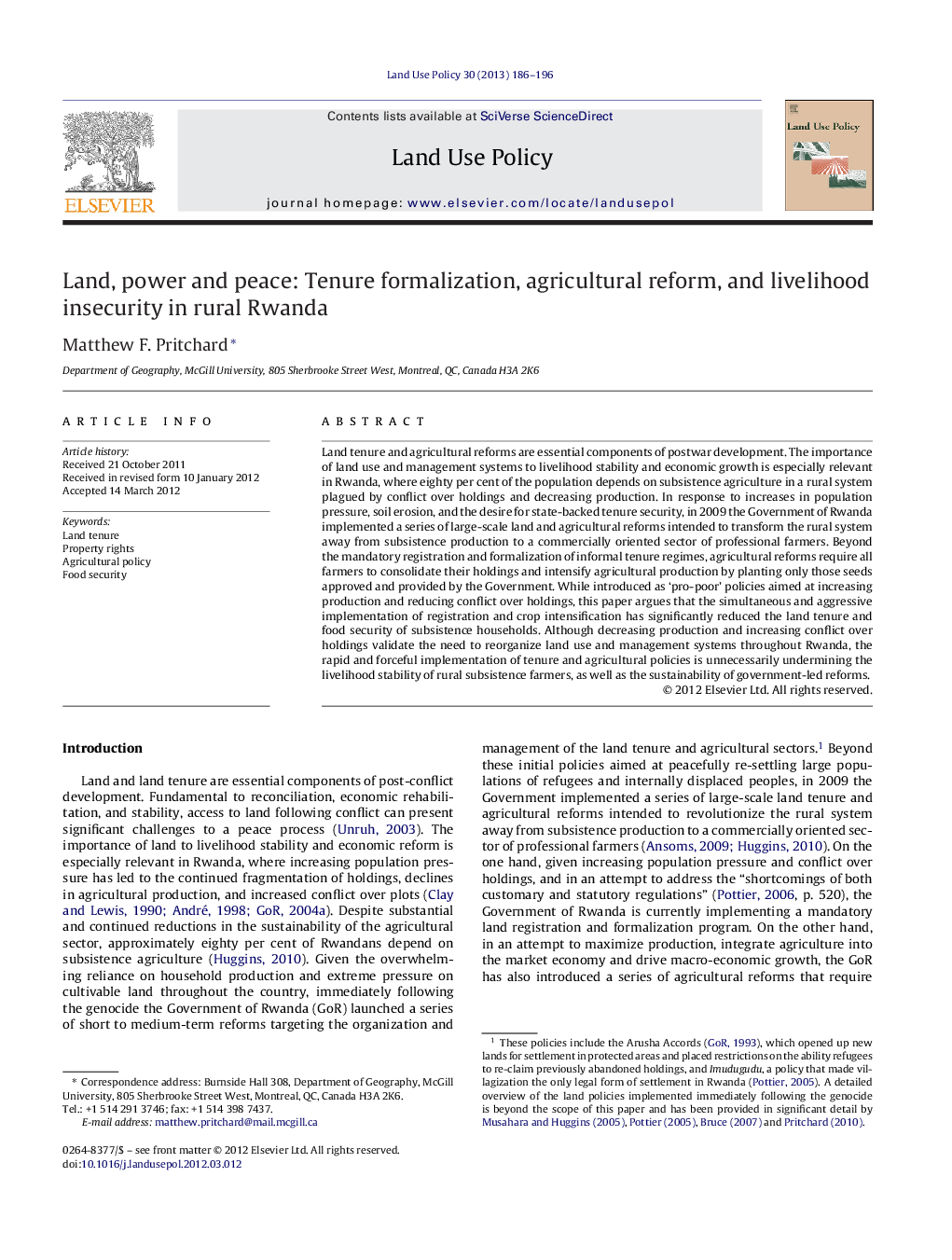| Article ID | Journal | Published Year | Pages | File Type |
|---|---|---|---|---|
| 92980 | Land Use Policy | 2013 | 11 Pages |
Land tenure and agricultural reforms are essential components of postwar development. The importance of land use and management systems to livelihood stability and economic growth is especially relevant in Rwanda, where eighty per cent of the population depends on subsistence agriculture in a rural system plagued by conflict over holdings and decreasing production. In response to increases in population pressure, soil erosion, and the desire for state-backed tenure security, in 2009 the Government of Rwanda implemented a series of large-scale land and agricultural reforms intended to transform the rural system away from subsistence production to a commercially oriented sector of professional farmers. Beyond the mandatory registration and formalization of informal tenure regimes, agricultural reforms require all farmers to consolidate their holdings and intensify agricultural production by planting only those seeds approved and provided by the Government. While introduced as ‘pro-poor’ policies aimed at increasing production and reducing conflict over holdings, this paper argues that the simultaneous and aggressive implementation of registration and crop intensification has significantly reduced the land tenure and food security of subsistence households. Although decreasing production and increasing conflict over holdings validate the need to reorganize land use and management systems throughout Rwanda, the rapid and forceful implementation of tenure and agricultural policies is unnecessarily undermining the livelihood stability of rural subsistence farmers, as well as the sustainability of government-led reforms.
► Decreasing agricultural production and increasing conflict over land in Rwanda. ► Government is implementing mandatory registration and crop consolidation. ► Rapid and forceful policy implementation is reducing tenure and food security. ► Land and agricultural laws are dividing rural communities into distinct polities. ► Policies are unnecessarily undermining the sustainability of state-led reforms.
